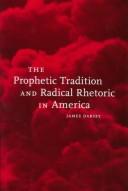| Listing 1 - 2 of 2 |
Sort by
|
Book
ISBN: 9781107127548 9781107566613 9781316412299 1107566614 1107127548 1316412296 1316588726 1316590054 Year: 2016 Publisher: New York (N.Y.): Cambridge university press,
Abstract | Keywords | Export | Availability | Bookmark
 Loading...
Loading...Choose an application
- Reference Manager
- EndNote
- RefWorks (Direct export to RefWorks)
"Rather than considering political discussions and rhetoric as symbolic, inconsequential forms of politics, Governing with Words conceptualizes them as forms of government action that can shape institutions and societal norms. Daniel Q. Gillion refers to this theory as 'discursive governance'. Federal politicians' statements about racial and ethnic minority concerns aid the passage of minority public policies and improve individual lifestyle behaviors. Unfortunately, most of the American public continues to disapprove of politicians' rhetoric that highlights race. The book argues that addressing racial and ethnic inequality continues to be a tug-of-war between avoiding the backlash of the majority in this nation while advocating for minority interests. Even though this paradox looms over politicians' discussions of race, race-conscious political speech, viewed in its entirety, is the mechanism by which marginalized groups find a place in the democratic process. Such race-conscious discussions, the book argues, have ramifications both within and outside of government"--
Rhetoric --- Political oratory --- Politicians --- Minorities --- Political aspects --- Social aspects --- Language --- Political activity --- United States --- Race --- Social policy --- Rhetoric - Political aspects - United States --- Political oratory - Social aspects - United States --- Politicians - United States - Language --- Minorities - Political activity - United States --- United States - Social policy --- Race - Political aspects - United States --- Language. --- Social policy.

ISBN: 0814720986 0585239800 0814718760 0814719244 9780814720981 9780585239804 9780814718766 Year: 1997 Publisher: New York, NY : New York University Press,
Abstract | Keywords | Export | Availability | Bookmark
 Loading...
Loading...Choose an application
- Reference Manager
- EndNote
- RefWorks (Direct export to RefWorks)
This expansive volume traces the rhetoric of reform across American history, examining such pivotal periods as the American Revolution, slavery, McCarthyism, and today's gay liberation movement. At a time when social movements led by religious leaders, from Louis Farrakhan to Pat Buchanan, are playing a central role in American politics, James Darsey connects this radical tradition with its prophetic roots. Public discourse in the West is derived from the Greek principles of civility, diplomacy, compromise, and negotiation. On this model, radical speech is often taken to be a symptom of social disorder. Not so, contends Darsey, who argues that the rhetoric of reform in America represents the continuation of a tradition separate from the commonly accepted principles of the Greeks. Though the links have gone unrecognized, the American radical tradition stems not from Aristotle, he maintains, but from the prophets of the Hebrew Bible.
English language -- United States -- Rhetoric. --- Political oratory -- Social aspects -- United States. --- Prophecy -- Social aspects -- United States. --- Radicalism -- United States. --- Rhetoric -- Social aspects -- United States. --- Social problems -- United States. --- United States -- Social conditions -- 1980-. --- Political oratory --- English language --- Rhetoric --- Radicalism --- Prophecy --- Social problems --- Social aspects --- Rhetoric. --- United States --- Social conditions --- Language and languages --- Speaking --- Extremism, Political --- Ideological extremism --- Political extremism --- Parliamentary oratory --- Political speaking --- Forecasting --- Authorship --- Expression --- Literary style --- Political science --- Oratory --- Politics, Practical --- Public speaking --- Political aspects --- Germanic languages
| Listing 1 - 2 of 2 |
Sort by
|

 Search
Search Feedback
Feedback About UniCat
About UniCat  Help
Help News
News